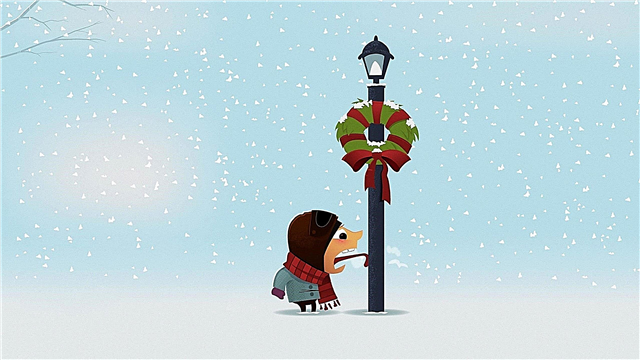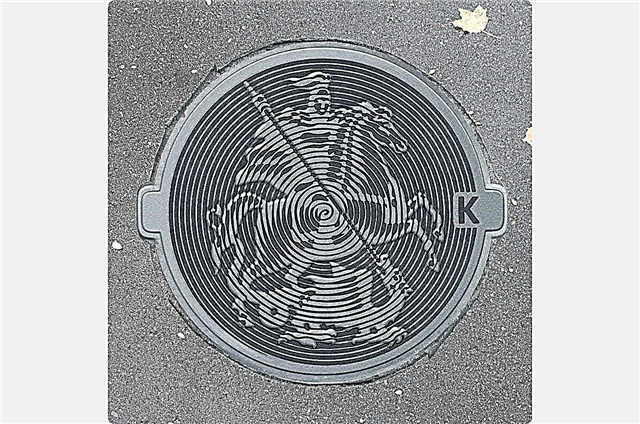
Nobody likes yabed and greedy. And often they even inflate an elephant out of a fly in a situation where you need to exhale and wait a bit.
Yabed and the age of the child
How much how much is your baby? Two years old? Such a crumb does not yet understand the essence of shedding, he simply retells the facts to you. Typical situation: you told your older child to do homework. After a while, the younger one comes running to you and “gives out with giblets” his brother: “Kolya - cartoons!” Do you think you got a little naughty? You are mistaken: just said that he saw. True sneakers should at least be able to speak well and, most importantly, anticipate the results of their actions.
At 3 years old, children only replenish their vocabulary and do not know how to predict in advance. Therefore, do not hang up insulting labels, do not wind yourself up, but simply switch the child’s attention at the right time: “Does the brother watch a cartoon? What are you doing? Do you draw? Draw a bird for mom! ”
Greed
1.5-2 years - at this age of the child, parents first encounter his “greed”: always a calm baby suddenly takes a bucket from the same baby. Nobody wants to give in, and in the end it all ends with sobs. “My child is a greedy?” - Mom worries. Do not panic: at this age, the baby does not know how to empathize. He can look indifferently at a crying peer offended by him or, without demand, take someone else's toy. In the first place the baby has his own desires.
2-3 years - the formation of your own “I” begins.Previously, your child spoke about himself in the third person: “Kolya eats, Kolya plays,” and by the age of two he begins to utter the words “I” and “mine”. And this “mine” becomes so important that any encroachment on personal things is perceived as a threat to one’s own security. The offended kid simply does not understand that his favorite toy is not taken forever. Be understanding! A doll, a bucket and a baby car are about the same as a phone, wallet or favorite perfume for you. Do you often give personal items to others? No! So why should your child do this?
After 3 years, children begin to play together, and they themselves strive to offer friends toys, because one machine is good, and two are more interesting. It is at this time that one can and should explain to the child that sharing is good for himself.
Parent Tips
- Offer, not force, "You can share cookies with mom, and mom will share an apple with you." So the baby learns to understand: the world is generous to you, if you are generous to it.
- Do not scold or shame. For three cases of greed, close your eyes, and praise one manifestation of generosity. “What a fellow you are, Vanya, that gave Verochka a shovel. Now you can sculpt muffins together. ”
- Do not take the toy away or give it to another baby. The child will regard such an act as "mother loves him more than me."
- Share. Break off a piece of your pie. And be sure to praise the baby when he shares something with you.
- Play! In role-playing games, you can work out situations where a child shares toys with others.Compose fairy tales, invent new stories.
- Teach your child to communicate. A shy kid can seek comfort with his toys and protect them as his most important friends.
From 3 to 5. Often the spouse tells her husband what happened in a day. The elder "rolled" in algebra, the mother-in-law was tired of talking about hypertension. Is she sneaking? No, just sharing the facts, their feelings. So the child: reports the act of another person ("Grisha took the candy from the big box"), as a rule, without malicious intent. And the adult's task is to discuss with him whether the other children behaved correctly, he himself and what is the best way to act next time.
At this age, it is very important for baby to hear from an adult, "what is good and what is bad." It is through your opinion that the child learns to evaluate his behavior. But after a strict remark: “don’t complain”, “don’t overshadow” - the baby may become isolated and will no longer want to share with you.
From 5 to 7. At age 5, the fun begins - the child develops self-esteem, which, it turns out, can be improved by lowering the qualities of other people. Therefore, complaining, the baby often simply raises its own status. Moreover, at this age they become sneaky consciously, wanting to get approval from the elders.
Most often, children “rejected” by peers, as well as unsure of themselves, “report”. With such children, both parents and specialists need to be seriously engaged.
Parent Tips
- Tell me the right solution. Often children complaining to their parents expect advice from them. So give it to him!
- Do not provoke jealousy. A sense of competition for parental love is one of the causes of slander. It should not be that the eldest is always to blame, and the younger is forgiven only because he is Little.
- Do not compare children among themselves. And then the second child will begin to “inform” in order to take revenge.
- Always listen to your child. Sometimes the baby is just looking for your participation and sympathy. For example, she complains about the severity of the teacher, that a classmate did not invite him to his birthday ... Listen to the story to the end, hug, cheer up. Your attention is the best gift.
- Take a closer look at yourself. Perhaps you yourself complain about someone and do not notice? Maybe your child is just copying you?












